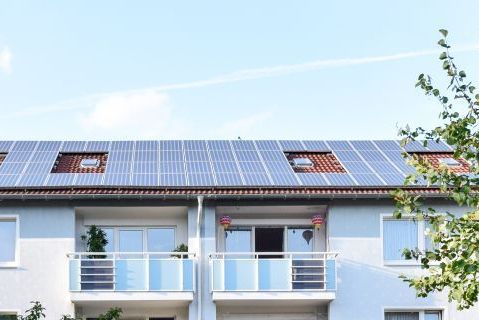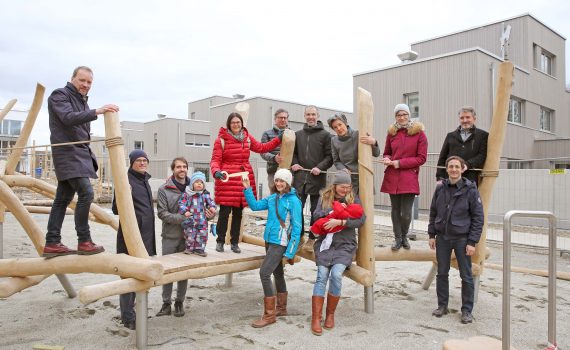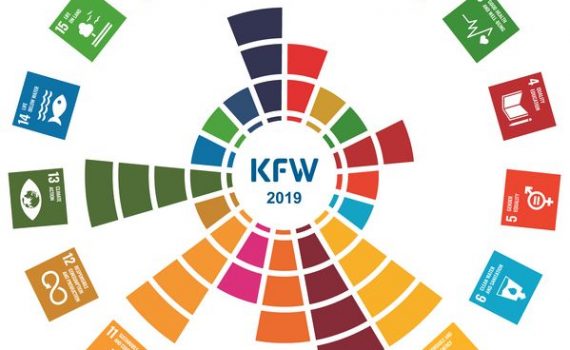 With the architect Amandus Samsøe Sattler, the German Sustainable Building Council - DGNB e.V. has a new president. In this role, he succeeds Prof. Alexander Rudolphi, who will continue his work on the association's executive committee. The change was announced today during the DGNB Sustainability Day in Stuttgart. The election was held on the eve of the event by the ten members of the DGNB Executive Committee. Samsøe Sattler will initially take over the office until the next DGNB general meeting in the middle of next year.
With the architect Amandus Samsøe Sattler, the German Sustainable Building Council - DGNB e.V. has a new president. In this role, he succeeds Prof. Alexander Rudolphi, who will continue his work on the association's executive committee. The change was announced today during the DGNB Sustainability Day in Stuttgart. The election was held on the eve of the event by the ten members of the DGNB Executive Committee. Samsøe Sattler will initially take over the office until the next DGNB general meeting in the middle of next year.
Kategorie für Blog: Stakeholders
 A study funded by the Federal Ministry of Agriculture determined the potential of hardwood as a substitute for coniferous wood. The results of the study are now available in a brochure published by the Fachagentur Nachwachsende Rohstoffe e. V. (FNR). There is considerable potential for hardwood to be used in industrial timber, but it cannot yet be a substitute for softwood in construction
A study funded by the Federal Ministry of Agriculture determined the potential of hardwood as a substitute for coniferous wood. The results of the study are now available in a brochure published by the Fachagentur Nachwachsende Rohstoffe e. V. (FNR). There is considerable potential for hardwood to be used in industrial timber, but it cannot yet be a substitute for softwood in construction
"The world's water resources are currently facing the greatest threat in the history of mankind," write aquatic ecologists in their recently published statement paper. More than one hundred professional societies of aquatic ecosystem research around the globe have signed the joint statement. In it, the researchers show the dramatic effects that climate change is having on aquatic ecosystems worldwide. They call for immediate concerted action by politics, business, science and society to halt the progress of climate change.
 As stated by EU Commission President Ursula von der Leyen in her State of the Union address announced, the European Commission today (Thursday) proposed that EU greenhouse gas emissions should fall by at least 55 percent by 2030 compared to 1990 levels. The previous target was 40 percent. The new target is based on a comprehensive impact assessment of the social, economic and environmental consequences. This shows that 55 percent less emissions is realistic and feasible. The new climate target will help support Europe's economic recovery from the coronavirus pandemic. It also demonstrates the EU's global leadership in the run-up to the next UN climate conference (COP26).
As stated by EU Commission President Ursula von der Leyen in her State of the Union address announced, the European Commission today (Thursday) proposed that EU greenhouse gas emissions should fall by at least 55 percent by 2030 compared to 1990 levels. The previous target was 40 percent. The new target is based on a comprehensive impact assessment of the social, economic and environmental consequences. This shows that 55 percent less emissions is realistic and feasible. The new climate target will help support Europe's economic recovery from the coronavirus pandemic. It also demonstrates the EU's global leadership in the run-up to the next UN climate conference (COP26).
CO2-Emissions should be reduced by 65 percent over the next ten years compared to 1990 in order to achieve climate neutrality - Energy system must be converted to 100 percent renewable energies by 2040 - Investment of 3,000 billion euros required to meet European Green Deal and Paris climate targets - German EU Council Presidency can ensure that Corona aid packages link economic stimulus with climate protection
Climate protection is important to over 80 percent of Germans - but this should not be reflected in higher rental costs. In order to increase the acceptance of energy-efficient renovations, Deutsche Wohnen has developed a model of how climate protection and social compatibility can come together. The "Concept for Socially Compatible Climate Protection in the Building Sector" aims to significantly increase the rate of refurbishment in existing buildings in order to achieve national climate protection targets. At the same time, an economic stimulus package worth billions is being initiated.
 30.06.2020 - 16 players in the German financial sector, with assets of more than €5.5 trillion and over 46 million customer connections in Germany, have signed a voluntary commitment to align their loan and investment portfolios in line with the goals of the Paris Climate Agreement. Through the agreed measurement, publication and target setting to reduce the emissions associated with the loan and investment portfolios, the financial sector intends to make a contribution to climate protection and support the sustainable and future-oriented further development of the economy. This brings the German financial centre one step closer to the goal set by the German government at the beginning of 2019 of making Germany one of the leading locations for sustainable finance.
30.06.2020 - 16 players in the German financial sector, with assets of more than €5.5 trillion and over 46 million customer connections in Germany, have signed a voluntary commitment to align their loan and investment portfolios in line with the goals of the Paris Climate Agreement. Through the agreed measurement, publication and target setting to reduce the emissions associated with the loan and investment portfolios, the financial sector intends to make a contribution to climate protection and support the sustainable and future-oriented further development of the economy. This brings the German financial centre one step closer to the goal set by the German government at the beginning of 2019 of making Germany one of the leading locations for sustainable finance.
The new version of the Bavarian Building Code will make it easier to build with wood in the future. In future, it can be used in all building classes. Schreyer: "With this, we are making wood significantly more attractive as a building material and thus making construction more sustainable." The Council of Ministers passed the amendment in its session today. Now it is the turn of the state parliament.
 At the proposal of the Federal Environment Ministry, the Federal Cabinet adopted the third German Resource Efficiency Programme (ProgRess III) on 17 June 2020. With this programme, the government aims to achieve an economical use of raw materials. Companies in particular are to use natural resources more efficiently along the entire value chain. Greater use is to be made of digital solutions to increase resource efficiency. The decision in favour of resource-saving products is to be made easier for citizens through improved information.
At the proposal of the Federal Environment Ministry, the Federal Cabinet adopted the third German Resource Efficiency Programme (ProgRess III) on 17 June 2020. With this programme, the government aims to achieve an economical use of raw materials. Companies in particular are to use natural resources more efficiently along the entire value chain. Greater use is to be made of digital solutions to increase resource efficiency. The decision in favour of resource-saving products is to be made easier for citizens through improved information.
18 minute radio report from 23.06.2020 by Josephine Schulz in the media library of Deutschlandfunk: www.deutschlandfunk.de/oeffentliche-auftraege-wie-der-staat-fair-einkaufen-will.724.de.html?dram:article_id=479176 The demand for sustainable products can be increased through municipal procurement. Positive examples but also the problems of sustainable procurement are discussed in the article. Buildings and larger properties are not explicitly mentioned, but the principles basically apply there as well.
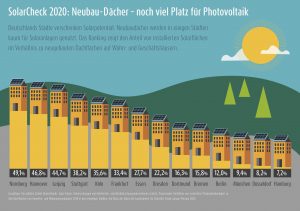 Good news for the PV industry: The solar cap will be abolished and solar expansion will be further promoted. The photovoltaic potential in Germany is enormous - especially when it comes to using roof space on new buildings. The new LichtBlick SolarCheck now shows in detail how well the 14 largest German cities are currently exploiting this potential. Enormous differences are revealed: While Nuremberg (49.1%) and Hanover (46.8%) exploit almost half of their potential, Munich and Düsseldorf do not even reach the 10 percent hurdle. The absolute taillight: the Hanseatic city of Hamburg with only 7.2 percent - one more reason for the solar obligation for new buildings planned by the mayor's office.
Good news for the PV industry: The solar cap will be abolished and solar expansion will be further promoted. The photovoltaic potential in Germany is enormous - especially when it comes to using roof space on new buildings. The new LichtBlick SolarCheck now shows in detail how well the 14 largest German cities are currently exploiting this potential. Enormous differences are revealed: While Nuremberg (49.1%) and Hanover (46.8%) exploit almost half of their potential, Munich and Düsseldorf do not even reach the 10 percent hurdle. The absolute taillight: the Hanseatic city of Hamburg with only 7.2 percent - one more reason for the solar obligation for new buildings planned by the mayor's office.
Am 20. Juni ist kalendarischer Sommeranfang und vielerorts sind schon jetzt Trockenheit und niedrige Wasserstände in den Flüssen an der Tagesordnung, die Gewässer in Deutschland sind nicht gegen die Auswirkungen des Klimawandels gerüstet. Angesichts der verheerenden Zustände vieler Gewässer in Deutschland fordert der BUND einen Paradigmenwechsel im Umgang mit unseren Gewässern: Oberstes Prinzip in Zeiten des Klimawandels muss sein, Wasser in der Landschaft zu halten und Bächen und Flüssen ihre natürliche Dynamik innerhalb ihrer Auen zurückzugeben. Nur knapp acht Prozent der Flüsse und Bäche in Deutschland erreichen den von der europäischen Wasserrahmenrichtlinie geforderten guten ökologischen Zustand. Knapp 40 Prozent der oberirdischen Gewässer sind europaweit durch vielfältige Stressoren wie Klimawandel, Nährstoffeinträge durch die Landwirtschaft oder Begradigungen belastet. "Wir heizen die Erde weiter auf, gleichzeitig entwässern wir die Landschaft. Deshalb ist es keine Überraschung, dass es unseren heimischen Gewässern so schlecht geht", betont Olaf Bandt, Vorsitzender des BUND, mit Blick auf eine aktuelle Auswertung des BUND zu den Auswirkungen des Klimawandels auf Gewässer.
On 18 June 2020, the German Bundestag passed the Building Energy Act (GEG) in its third reading. With this law, the federal government is combining the existing requirements of the Energy Saving Ordinance (EnEV), the Renewable Energies Heat Act (EEWärmeG) and the Energy Saving Act (EnEG). For the information programme Zukunft Altbau (Future of Old Buildings), which is supported by the Baden-Württemberg Ministry of the Environment, the specifications of the new law are not ambitious enough. To bring climate-friendly building and renovation nationwide on the way is not possible in the future. "The legislator has missed it to introduce more demanding standards," says Frank Hettler of Zukunft Altbau. "For a sustainable building stock in Germany, however, these are urgently needed to achieve the climate targets." The GEG will now be forwarded to the Bundesrat, which, however, does not require approval, and is expected to come into force by the end of the year.
 Zur heutigen Kabinettssitzung und der dabei geplanten Befassung mit dem Entwurf eines Deutschen Ressourceneffizienzprogramms III (ProgRess III) erklären Dieter Janecek, Sprecher für Industriepolitik und digitale Wirtschaft, und Dr. Bettina Hoffmann, Sprecherin für Umweltpolitik und Umweltgesundheit:
Mit ProgRess III tritt die Bundesregierung auf der Stelle. Zwei Ressourceneffizenzprogramme der Bundesregierung konnten nicht verhindern, dass der deutsche Rohstoffverbrauch weiterhin steigt. Es ist absehbar, dass auch das dritte Ressourcenprogramm der Bundesregierung daran nichts ändert. Auch ProgRess III bleibt ein längliches Sammelsurium von Plänen, Ankündigungen und Prüfaufträgen.
Zur heutigen Kabinettssitzung und der dabei geplanten Befassung mit dem Entwurf eines Deutschen Ressourceneffizienzprogramms III (ProgRess III) erklären Dieter Janecek, Sprecher für Industriepolitik und digitale Wirtschaft, und Dr. Bettina Hoffmann, Sprecherin für Umweltpolitik und Umweltgesundheit:
Mit ProgRess III tritt die Bundesregierung auf der Stelle. Zwei Ressourceneffizenzprogramme der Bundesregierung konnten nicht verhindern, dass der deutsche Rohstoffverbrauch weiterhin steigt. Es ist absehbar, dass auch das dritte Ressourcenprogramm der Bundesregierung daran nichts ändert. Auch ProgRess III bleibt ein längliches Sammelsurium von Plänen, Ankündigungen und Prüfaufträgen.
The parliament of Bremen wants to oblige the use of solar energy on all new and existing buildings in Bremen and Bremerhaven. Whenever the roof surface is completely renewed, they are to be equipped with a solar system in the future. This is photovoltaics and, if necessary, also solar thermal energy. The Senate is currently examining the latter.
Seit Ende Februar 2020 gilt der Mietendeckel in Berlin und der zeigt mittlerweile Wirkung: um 8% sind die Angebotsmieten für gedeckelte Bestandswohnungen im Schnitt gesunken, dagegen sind die Preise für nicht unter die Vorgaben fallenden Neubauten um 17% angestiegen.
Lecture "Can we build our way out of the climate crisis?" from 16 April 2020
Among other things, Schellnhuber calls for "prompt measures to achieve the two-degree target, above all by switching from fossil to renewable energy sources and replacing finite building materials with wood and renewable raw materials."
State government launches climate protection support programme for citizens
Environment Minister Jan Philipp Albrecht today presented the state's new funding programme for private investment in climate protection. It starts on Tuesday, 9 June, and includes a bundle of support measures. Funding is available for the purchase of cargo bikes, e-charging stations, electricity storage systems, photovoltaic balcony systems, solar thermal systems, non-fossil heating systems and rainwater cisterns. The installation of a district heating connection and the installation of a green roof are also subsidised. Now that almost all 570 flats in Germany's largest timber-built housing estate in Prinz-Eugen-Park have been occupied, the Munich planning committee has recommended realising the timber-built follow-up project "Kreativquartier" with 370 residential units.
Here are the key data:
http://sdg21.eu/db/kreativquartier
Now that almost all 570 flats in Germany's largest timber-built housing estate in Prinz-Eugen-Park have been occupied, the Munich planning committee has recommended realising the timber-built follow-up project "Kreativquartier" with 370 residential units.
Here are the key data:
http://sdg21.eu/db/kreativquartier
Council of Ministers approves bill to amend state building code
In its meeting on 26 May 2020, the Rhineland-Palatinate Council of Ministers approved in principle a draft bill to amend, among other things, the Rhineland-Palatinate Building Code. The amendment of the state building code is intended to implement changes to the so-called model building code that have already been adopted or are in preparation.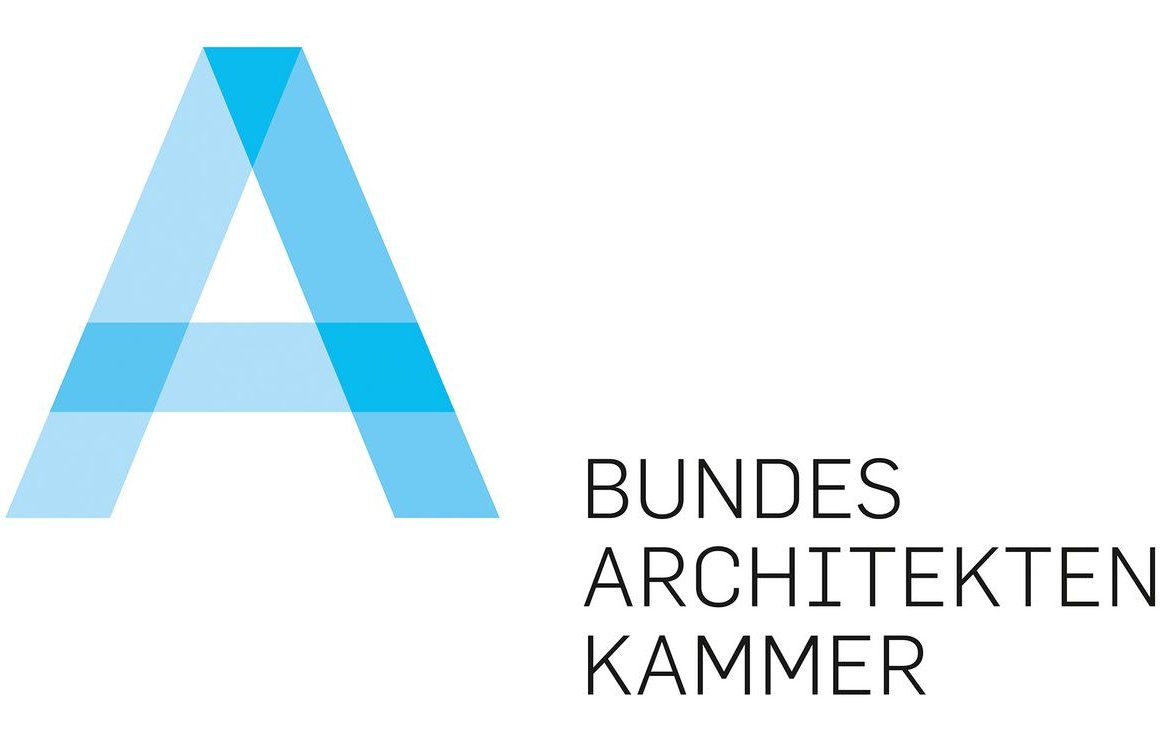 The Federal Chamber of Architects (BAK) and the Federal Foundation of Baukultur presented their proposal for a "Baukultur Innovation Programme" to politicians in Berlin today on behalf of the planning and construction industry.
Anne Katrin Bohle, State Secretary at the Federal Ministry of the Interior, Building and Community, accepted the four-point plan. In it, the authors suggest measures to overcome the coronavirus crisis that will have a lasting economic and social impact.
The Federal Chamber of Architects (BAK) and the Federal Foundation of Baukultur presented their proposal for a "Baukultur Innovation Programme" to politicians in Berlin today on behalf of the planning and construction industry.
Anne Katrin Bohle, State Secretary at the Federal Ministry of the Interior, Building and Community, accepted the four-point plan. In it, the authors suggest measures to overcome the coronavirus crisis that will have a lasting economic and social impact.
 Environment Minister Franz Untersteller reacted with relief to the agreement reached yesterday by the coalition on the amendment of the Climate Protection Act. The law is to be passed by the state parliament before the summer break and will then replace the previous climate protection law from 2013.
Environment Minister Franz Untersteller reacted with relief to the agreement reached yesterday by the coalition on the amendment of the Climate Protection Act. The law is to be passed by the state parliament before the summer break and will then replace the previous climate protection law from 2013.
 Berlin/Cologne. Climate protection and adaptation to the consequences of climate change will become increasingly important for cities. This is one of the findings of the survey of (Lord) Mayors of large German cities* conducted by the German Institute of Urban Affairs in January and February 2020. Almost two-thirds of the respondents named climate protection as an important municipal issue for the future. This means that the number of mayors who attribute an increase in importance to this field of municipal policy action has more than tripled compared to the previous year. Future surveys will show how strongly this result was influenced by the protests of the 'Fridays for Future' movement.
Berlin/Cologne. Climate protection and adaptation to the consequences of climate change will become increasingly important for cities. This is one of the findings of the survey of (Lord) Mayors of large German cities* conducted by the German Institute of Urban Affairs in January and February 2020. Almost two-thirds of the respondents named climate protection as an important municipal issue for the future. This means that the number of mayors who attribute an increase in importance to this field of municipal policy action has more than tripled compared to the previous year. Future surveys will show how strongly this result was influenced by the protests of the 'Fridays for Future' movement.
 Brussels/Freiburg, 5 May 2020 - An alliance "Solar Europe Now", officially launched on 5 May, is calling for solar energy to be recognised as a key technology for the objectives of the European Green Deal. The new alliance, which currently includes more than 90 players from the entire value chain of the European solar industry, is concerned that the photovoltaic sector is not being given enough consideration in the current presentation of the Green Deal.
Brussels/Freiburg, 5 May 2020 - An alliance "Solar Europe Now", officially launched on 5 May, is calling for solar energy to be recognised as a key technology for the objectives of the European Green Deal. The new alliance, which currently includes more than 90 players from the entire value chain of the European solar industry, is concerned that the photovoltaic sector is not being given enough consideration in the current presentation of the Green Deal.
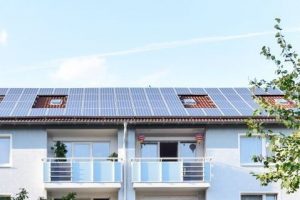 In Vienna, as a rule, no residential building may be erected without a solar system in the future. This is stipulated in an amendment to the building code, which is currently being evaluated, the red-green city government informed on Monday. Currently, such a photovoltaic obligation applies only to industrial buildings.
In Vienna, as a rule, no residential building may be erected without a solar system in the future. This is stipulated in an amendment to the building code, which is currently being evaluated, the red-green city government informed on Monday. Currently, such a photovoltaic obligation applies only to industrial buildings.
 Eine Studie des Forums Ökologisch-Soziale Marktwirtschaft im Auftrag von Greenpeace (März 2020).
Durch die Corona-Krise wird der Staat Soforthilfen und weitreichende Konjunkturmaßnahmen historischen Ausmaßes umsetzen. Während Gesundheit und die kurzfristige Unterstützung von Arbeitnehmer*innen und Unternehmen in den Fokus rücken, dürfen die Fehler vergangener Wirtschaftskrisen nicht wiederholt werden. Die geplanten Hilfen für einen wirtschaftlichen Neustart können die Weichen stellen für die notwendige Transformation. Anhand einiger Beispiele wird illustriert, wie kurzfristige wirtschaftliche Unterstützung mit langfristigen gesellschaftlichen Prioritäten in Einklang gebracht werden können.
Eine Studie des Forums Ökologisch-Soziale Marktwirtschaft im Auftrag von Greenpeace (März 2020).
Durch die Corona-Krise wird der Staat Soforthilfen und weitreichende Konjunkturmaßnahmen historischen Ausmaßes umsetzen. Während Gesundheit und die kurzfristige Unterstützung von Arbeitnehmer*innen und Unternehmen in den Fokus rücken, dürfen die Fehler vergangener Wirtschaftskrisen nicht wiederholt werden. Die geplanten Hilfen für einen wirtschaftlichen Neustart können die Weichen stellen für die notwendige Transformation. Anhand einiger Beispiele wird illustriert, wie kurzfristige wirtschaftliche Unterstützung mit langfristigen gesellschaftlichen Prioritäten in Einklang gebracht werden können.
While the emergency aid for companies is getting underway, the debate about possible post-crisis economic stimulus packages is also gaining momentum. The German Green Business Association is proposing a transformation fund to combine a new start for the economy with social aspects and environmental and climate protection.
 Sustainable development is hardly conceivable without a consistent circular economy. Turning away from a predominantly linear economy requires a change of course. UBA has drawn up guiding principles for politics, business and society which systematically set out the objectives, scope for action, standards of action, requirements and success factors of a circular economy.
Sustainable development is hardly conceivable without a consistent circular economy. Turning away from a predominantly linear economy requires a change of course. UBA has drawn up guiding principles for politics, business and society which systematically set out the objectives, scope for action, standards of action, requirements and success factors of a circular economy.
 Hydrogen from hydropower: successful start for one of the largest power-to-gas plants in Germany to date. This is reported by the Centre for Solar Energy and Hydrogen Research Baden-Württemberg (ZSW). The megawatt plant has been in operation for four months in April 2020 and is functioning reliably. A research electrolyser connected to it is also running successfully. The ZSW is coordinating the project. The operator of the commercial plant is the energy supplier Energiedienst AG.
Hydrogen from hydropower: successful start for one of the largest power-to-gas plants in Germany to date. This is reported by the Centre for Solar Energy and Hydrogen Research Baden-Württemberg (ZSW). The megawatt plant has been in operation for four months in April 2020 and is functioning reliably. A research electrolyser connected to it is also running successfully. The ZSW is coordinating the project. The operator of the commercial plant is the energy supplier Energiedienst AG.
 In research, neighbourhoods have been recognised as an important level of action for climate protection. For this reason, the BMBF, BMU and the Federal Ministry of Building and Transport have funded several research projects on sustainable neighbourhoods, which are now being worked on. The consensus of the research projects presented and the funding bodies is that it is important to research neighbourhood concepts for a climate-friendly heat and electricity supply as well as an environmentally friendly mobility offer in an economical way" and "to link the individual elements in the sense of a functioning sector coupling in a meaningful way."
The focus articles in the "Ecological Economy 3/2019" issue highlight the potential of the neighbourhood approach for the implementation of climate protection measures, but also present best practice examples and discuss feasibility in practice.
In research, neighbourhoods have been recognised as an important level of action for climate protection. For this reason, the BMBF, BMU and the Federal Ministry of Building and Transport have funded several research projects on sustainable neighbourhoods, which are now being worked on. The consensus of the research projects presented and the funding bodies is that it is important to research neighbourhood concepts for a climate-friendly heat and electricity supply as well as an environmentally friendly mobility offer in an economical way" and "to link the individual elements in the sense of a functioning sector coupling in a meaningful way."
The focus articles in the "Ecological Economy 3/2019" issue highlight the potential of the neighbourhood approach for the implementation of climate protection measures, but also present best practice examples and discuss feasibility in practice.
 From the meeting of the Senate on 10 March 2020:
The Senate today adopted a comprehensive catalogue of measures to accelerate the expansion of solar energy in Berlin, following a proposal by the Senator for Economics, Energy and Public Enterprises, Ramona Pop.
Senator Pop: "The potential study for the Solarcity Masterplan has shown that we can harvest 25 per cent of the electricity generated with solar energy from Berlin's rooftops. We must therefore accelerate the expansion of solar energy in the city. It is necessary for the federal government to finally improve the legal framework for solar energy in cities. Nevertheless, we want to actively utilise the available scope at state level. With the Solarcity Masterplan, we will expand information and advice, provide incentives and also examine regulatory instruments. The implementation of the Solarcity Masterplan is a joint task for the Senate, but also for all Berlin stakeholders from business and society."
From the meeting of the Senate on 10 March 2020:
The Senate today adopted a comprehensive catalogue of measures to accelerate the expansion of solar energy in Berlin, following a proposal by the Senator for Economics, Energy and Public Enterprises, Ramona Pop.
Senator Pop: "The potential study for the Solarcity Masterplan has shown that we can harvest 25 per cent of the electricity generated with solar energy from Berlin's rooftops. We must therefore accelerate the expansion of solar energy in the city. It is necessary for the federal government to finally improve the legal framework for solar energy in cities. Nevertheless, we want to actively utilise the available scope at state level. With the Solarcity Masterplan, we will expand information and advice, provide incentives and also examine regulatory instruments. The implementation of the Solarcity Masterplan is a joint task for the Senate, but also for all Berlin stakeholders from business and society."
 City Planning Councillor Professor Dr. (l) Elisabeth Merk has now symbolically handed over the key to the members of the "Der Kleine Prinz" building association in Munich's Prinz Eugen Park. Their new building ensemble of atrium and point houses on Jörg-Hube-Strasse is part of the ecological model settlement there. In addition to apartments, two guest apartments, an ice cream café and a bicycle repair shop were built.
City Planning Councillor Professor Dr. (l) Elisabeth Merk has now symbolically handed over the key to the members of the "Der Kleine Prinz" building association in Munich's Prinz Eugen Park. Their new building ensemble of atrium and point houses on Jörg-Hube-Strasse is part of the ecological model settlement there. In addition to apartments, two guest apartments, an ice cream café and a bicycle repair shop were built.
 Konturen einer solidarischen Stadtpolitik
Anton Brokow-Loga (Hrsg.),
Frank Eckardt (Hrsg.)
Städte ohne Wachstum – eine bislang kaum vorstellbare Vision. Doch Klimawandel,
Ressourcenverschwendung, wachsende soziale Ungleichheiten und viele andere
Zukunftsgefahren stellen das bisherige Allheilmittel Wachstum grundsätzlich infrage. Wie wollen
wir heute und morgen zusammenleben? Wie gestalten wir ein gutes Leben für alle in der Stadt?
Konturen einer solidarischen Stadtpolitik
Anton Brokow-Loga (Hrsg.),
Frank Eckardt (Hrsg.)
Städte ohne Wachstum – eine bislang kaum vorstellbare Vision. Doch Klimawandel,
Ressourcenverschwendung, wachsende soziale Ungleichheiten und viele andere
Zukunftsgefahren stellen das bisherige Allheilmittel Wachstum grundsätzlich infrage. Wie wollen
wir heute und morgen zusammenleben? Wie gestalten wir ein gutes Leben für alle in der Stadt?
- Over EUR 28 billion for "climate protection measures": KfW is one of the most important supporters of the Paris climate goals
- Promotional bank is a global pioneer with its standardised SDG mapping
- Strong international interest in KfW SDG mapping
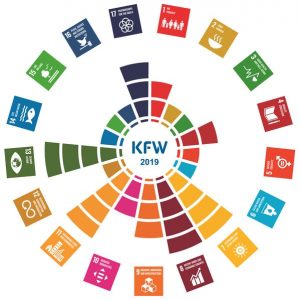 KfW is today publishing the results of the SDG mapping of new commitments throughout the Group in 2019. In order to clarify the individual contribution made by KfW's new commitments to achieving the UN Sustainable Development Goals, KfW has developed a standardised procedure: 1,500 indicators are used each year to determine to which SDGs KfW's new commitments can be assigned. This makes the contribution transparent at both group and business sector level.
KfW is today publishing the results of the SDG mapping of new commitments throughout the Group in 2019. In order to clarify the individual contribution made by KfW's new commitments to achieving the UN Sustainable Development Goals, KfW has developed a standardised procedure: 1,500 indicators are used each year to determine to which SDGs KfW's new commitments can be assigned. This makes the contribution transparent at both group and business sector level.The federal government can give a short-term boost to public housing construction in Germany and thus help to ease the acute housing shortage in many large cities. The key to this is three federally owned companies that provide flexible support to the federal states and local authorities in the development of construction projects and the construction of new housing: Firstly, a consultancy company that provides planning capacities to cities and municipalities. Secondly, a land fund that provides financial and conceptual support to local authorities nationwide in acquiring building land and financing infrastructure. Thirdly, an investment company that strengthens the equity of municipal housing construction companies through financial participation. Prof Dr Sebastian Dullien, Scientific Director of the Institute for Macroeconomics and Economic Research (IMK) at the Hans Böckler Foundation, and Prof Dr Tom Krebs from the University of Mannheim show this in a new concept for a federal "Future Housing" initiative.
A further 700,000 euros will be available for #moinzukunft cargo bikes from 1 April. Up to 2,000 euros in subsidies are possible for the purchase of a new e-load bike and 500 euros for normal load bikes.
From 2022, all new public buildings must be made of at least 50 per cent wood or other sustainable building materials. For buildings with more than eight storeys, the supporting structure must even be made entirely of wood. It was also decided that 90 ecological neighbourhoods and 100 urban farms will be built in Paris.














